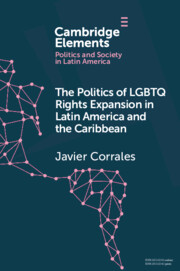1 results

The Politics of LGBTQ Rights Expansion in Latin America and the Caribbean
-
- Published online:
- 22 December 2021
- Print publication:
- 07 April 2022
-
- Element
- Export citation

